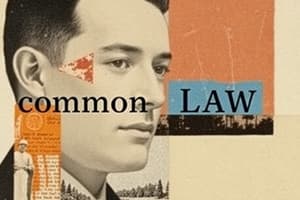Podcast
Questions and Answers
What role does the mediator play in the mediation process?
What role does the mediator play in the mediation process?
- The mediator represents one party in the negotiation.
- The mediator ensures all parties are heard and maintains a respectful discussion. (correct)
- The mediator dictates the terms of the agreement.
- The mediator makes a binding decision for the parties.
Which statement is true regarding the arbitrator in arbitration?
Which statement is true regarding the arbitrator in arbitration?
- The arbitrator should be a neutral, independent expert relevant to the dispute. (correct)
- The arbitrator must be a licensed attorney.
- The arbitrator leads the parties in detailed negotiations.
- The arbitrator's decision is non-binding unless agreed otherwise.
Which of the following is a benefit of using alternate dispute resolution (ADR)?
Which of the following is a benefit of using alternate dispute resolution (ADR)?
- ADR guarantees a legally enforceable outcome.
- ADR is always conducted in a public forum.
- ADR can often be completed more quickly than traditional litigation. (correct)
- ADR eliminates the need for any form of negotiation.
What is a key characteristic of the arbitration process?
What is a key characteristic of the arbitration process?
How can coaching be utilized by parties during an ADR process?
How can coaching be utilized by parties during an ADR process?
What is one of the core designs of ADR methods?
What is one of the core designs of ADR methods?
In what situation would a party most likely choose mediation over arbitration?
In what situation would a party most likely choose mediation over arbitration?
Which aspect differentiates arbitration from mediation?
Which aspect differentiates arbitration from mediation?
Which statement best describes the cost aspect of ADR?
Which statement best describes the cost aspect of ADR?
What is a potential disadvantage of mediation?
What is a potential disadvantage of mediation?
Flashcards are hidden until you start studying
Study Notes
Overview of Canadian Law Sources
- Statute law fills gaps in common law and equity or replaces common law decisions.
- Created through a specific process defined by Canada's Constitution, provinces follow a similar enactment process.
- Common law, originating from British legal tradition, relies on precedents set by royal court decisions.
Principles of Equity and Administrative Law
- Equity emerged from direct appeals to the monarch for dispute resolution, evolving into principles guiding decisions outside common law.
- Administrative law comprises regulations enabling implementation of large-scale laws by designated regulatory bodies.
- Military Courts operate under the federal National Defence Act, handling breaches of military conduct.
Structure of the Court System in Canada
- Provincial Courts of Appeals serve as the highest provincial courts, hearing civil and criminal appeals from Superior Courts.
- Provincial Superior Courts deal with serious civil/criminal cases and can grant divorces, with varying names across provinces.
- Most criminal, family, and small claims cases are managed by Provincial Courts, which also conduct preliminary inquiries for serious crimes.
Distinction between Criminal and Civil Cases
- Criminal cases involve acts injurious to society and are initiated by the State against an individual termed the accused.
- Civil cases arise between individuals or parties, typically applying statute law; common law provides some defenses.
- The Criminal Code of Canada encompasses most criminal offenses, while remedies in civil cases include specific performance and injunctions.
Appellate Process
- Appeals involve reviewing trial verdicts or sentences to potentially alter the court's decision, ensuring legal safeguards.
Alternate Dispute Resolution (ADR) Methods
- ADR resolves disputes privately, outside of traditional civil litigation, promoting efficiency and respect among parties.
- Key ADR methods include:
- Negotiation: Disputants independently address their issues with possible external coaching.
- Mediation: Involves a neutral mediator facilitating discussions between conflict parties to achieve consensus.
- Arbitration: An independent arbitrator, often a specialist, resolves disputes, and parties bind themselves to the arbitrator’s decision.
Benefits of ADR
- Generally faster and more cost-effective than litigation.
- Designed to respect all parties involved, fostering a cooperative resolution environment.
Studying That Suits You
Use AI to generate personalized quizzes and flashcards to suit your learning preferences.




